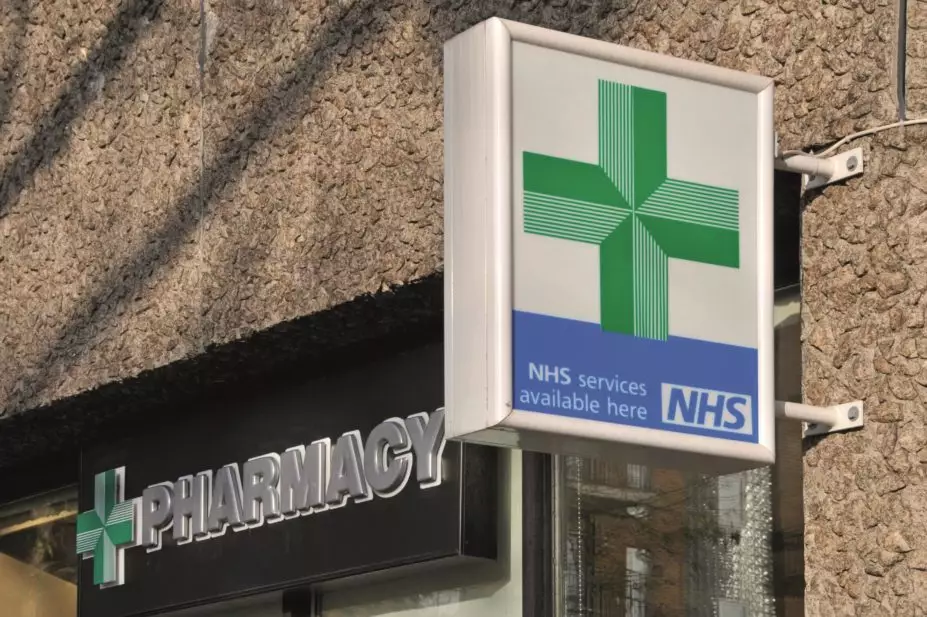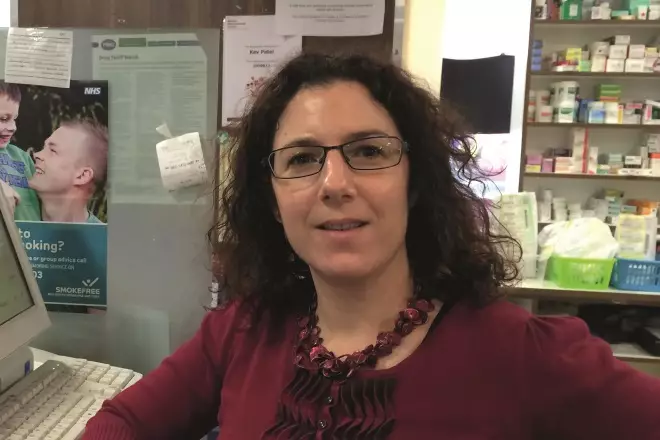
Justin Kase zninez / Alamy
In December 2015, the Department of Health (DH) announced plans to cut community pharmacy contractual funding in England by 6.1% from October 2016. A consultation to discuss the government’s proposals with pharmacy organisations, including the Royal Pharmaceutical Society (RPS), is under way and is due to close on 24 May 2016. Ahead of the outcome of the consultation, The Pharmaceutical Journal spoke to superintendents, pharmacy owners and locum pharmacists to gather their thoughts on the proposed cuts and how the profession should be responding.

Coll Michaels, superintendent pharmacist at Calverton Pharmacists Limited describes the cuts as “pretty severe”
Coll Michaels, superintendent pharmacist at Calverton Pharmacists Limited and chairman of Bedfordshire LPC
The government’s plans to reduce funding to pharmacy are pretty severe. I’ve been trying to motivate contractors and pharmacists to contact their MPs and local stakeholders to make them aware there is a danger to their local pharmacies.
We’re trying to leave out the immediate economic measures that are being applied as that’s not going to get a lot of sympathy — most people have the impression that pharmacy is a well-funded profession. They don’t know that there is an oversupply of pharmacists that has depressed the salaries of employee pharmacists quite severely over the past few years.
Instead, we’ll be concentrating on the impact on patients in terms of the services we provide. The richness of employee training and development that we’ve invested in over the past ten years to make pharmacy more of a clinical, rather than a retail, offering may well fall away if we’re forced to shed staff. And that’s for those pharmacies who are not threatened with closure because of clustering or low prescription volume.
Bedfordshire Local Pharmaceutical Committee (LPC) is trying to encourage people to sign the National Pharmacy Association (NPA) petition and to collect as many comments as possible about patients’ positive experiences of when pharmacists have gone out of their way to help them. These good things are part of our normal working day, they’re not funded services — they’re part of what we do as professionals and caring human beings; that’s what we want to promote to our MPs, stakeholders and patients.

Health centre pharmacy owner and manager, Joanne Harris, says that she doesn’t feel threatened by the cuts but does think that hub-and-spoke won’t work for community pharmacy
Joanne Harris, health centre pharmacy owner and manager at Cross Hills Pharmacy in West Yorkshire
The profession needs to remind the public and the government of the services that we can offer, but not panic — there is a lot of scaremongering going on. One of the mistakes that the government made was to allow so many pharmacies to open without there necessarily being a need and now it’s backtracking.
I don’t feel threatened because as long as we keep providing the service to our customers we will continue. From a financial point of view it gets tighter but everything in the NHS gets tighter; that’s just the reality of the situation that we’re in across the country. We’ll have to be a bit more frugal and more thoughtful from a business point of view on what we’re spending. But I’m always looking to change things; whether it’s running different clinics or taking on different patient group directions. I don’t think it will change my customers. From a workforce point of view it could change staffing levels.
I have written to my MP to say that hub-and-spoke won’t work for the customer base we serve; it will work for nursing homes but it won’t work for community pharmacy because patients want to come in and they want your time.

Raj Matharu, chief officer for BBG LPC, highlights that community pharmacy can only be at the heart of the NHS if funding is available
Raj Matharu, chief officer Bexley, Bromley and Greenwich LPC and chair of Pharmacy London (a collaboration of London LPCs)
There are grave concerns about whether this is a genuine consultation since it is not listed on the DH website as a consultation and does not adhere to the government’s consultation principles. This engagement is contrary to the principles and values of working together for patients, which is a central tenet of the NHS Constitution.
If the DH genuinely wants community pharmacy at the heart of the NHS it has to invest the Pharmacy Integration Fund exclusively for community pharmacy. Access to this funding and the Pharmacy Access Fund should be for the integration of community pharmacy into general practice or secondary care and not for any other agenda — it should not follow the fiasco of the Essential Small Pharmacy Local Pharmaceutical Services (ESP LPS) contracts.
At present, community pharmacy provides choice and convenience for people. It seems rather peculiar that the DH wants to re-engineer the sector towards on online network devoid of face-to-face contact. Online access can be embedded within the current infrastructure using funding from the government’s digital agenda.
Community pharmacy has been making efficiencies every year by dispensing ever increasing numbers of prescriptions and has saved the DH billions of pounds in the cost effective procurement of generics.
There has been plenty of rhetoric regarding community pharmacy as an ‘untapped resource’ for the NHS but this can only be enabled if funding follows. There has been considerable decommissioning of services within community pharmacy and the quality of commissioning needs to be addressed. Community pharmacy needs a stable commissioner; therefore it would be better for Public Health England and clinical commissioning groups to delegate the commissioning of community pharmacy services to NHS England to provide uniform services across the patient pathway.

Kalpesh Patel, pharmacist director of Kalpesh Pharmacy, says the profession should protest against the cuts
Kalpesh Patel, pharmacist director of Kalpesh Pharmacy in London
The profession should protest. The way these cuts came about was vastly unfair — it was dictated to us, there was no negotiation. Pharmacy is under a lot of pressure because we are providing the front-line health service to the public when GP appointments are not being met.
At a time when we’re investing in staff to provide additional services, cuts seriously affect us in terms of costs and profitability. So what do we do? Do we invest further at a loss or do we protest? I think we should protest because the cuts are going to affect the viability of many pharmacies at a time when the public needs us most.
We are involved in the ‘Support your local pharmacy’ campaign with the NPA; we already have more than 100 signatures that we’re going to send through, and this is just one of the ways we can protest. On 24 March 2016, there’s a march and a meeting in Westminster that the NPA has organised. We’re going to attend and we’re going to take two of our customers who will support us.

Mehtab Elahi, a locum pharmacist from East London says that the cuts go “against the principle of duty of care that the NHS stands for”
Mehtab Elahi, a locum pharmacist based in East London, who works for both independent and large multiple pharmacies across England
Community pharmacies are an important cornerstone of society. Patients are able to walk in at any time and gain professional advice and treatment at a time when it is becoming more and more difficult to get a GP appointment. These cuts of £170m could result in one in four pharmacies having to shut down, so we are essentially depriving communities of yet another valuable service. This goes against the principle of duty of care that the NHS stands for.
Pharmacies are an undervalued asset to the NHS and are already providing services such as minor ailment schemes, NHS flu vaccinations, travel clinics and much more. We should be investing in pharmacies and redirecting more services to them in a cost effective manner rather than hitting them with cuts.
The community pharmacy sector is already feeling the pinch, with pharmacists feeling overworked, undervalued and underpaid. Further cuts will result in reduced support staff, affecting the safety of our work environment. This will lead to an increase in errors when pharmacists are trying to fulfil too many roles, putting patients at risk. These cuts will affect everyone in the sector from locum pharmacists through to big multiples and everyone in between. We need to get together and make a stand against these cuts.

Pharmacist and pharmacy owner of Alpharm Pharmacy in Leicester, Altaf Vaiya, says that “the profession needs to understand that cutbacks are going to continue” and instead be “smart about how we approach them”
Altaf Vaiya, pharmacist and pharmacy owner of Alpharm Pharmacy, Leicester, and Leicestershire & Rutland LPC committee member
It’s not only pharmacy that has been affected by austerity. Contractors have to realise that cutbacks are coming and they’re affecting all of the NHS. Everyone needs to save money; we have to look closely at how we can do this without affecting the healthcare service we provide. The profession needs to understand that cutbacks are going to continue over the next few years and we have to take action in our businesses to adapt and to make efficiency savings to help our businesses survive.
Pharmacy is a competitive profession — I’m competing with many pharmacies in my local area every day. Therefore we need to learn to work better, and be smart about how we approach these cutbacks. We don’t want disunity — this won’t help anyone.
- Altaf Vaiya set up an independent survey in December 2015 to gather contactors’ views on the proposed pharmacy cuts. The survey received more than 250 responses, raising concerns that patient care will be compromised, that independent pharmacies will struggle to provide additional services and that errors may increase as a result of additional pressures on the workforce.
You may also be interested in
Long service of members

Membership fees 2022
